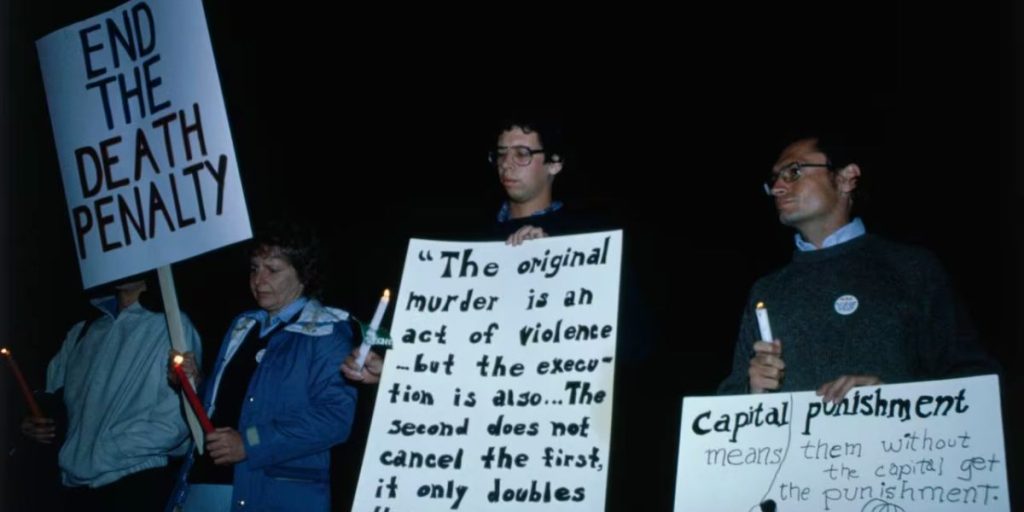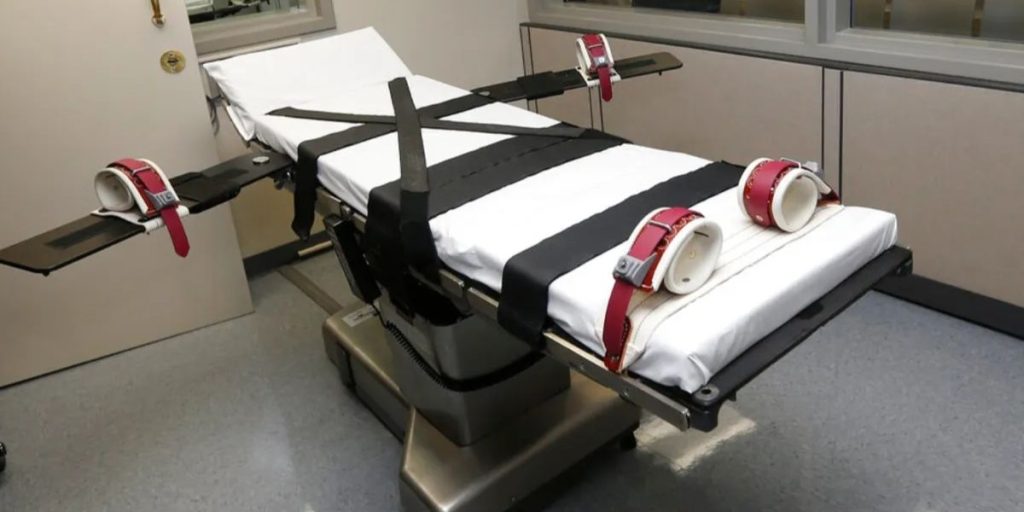A top United Nations human rights officer said Tuesday that the scheduled execution of an Alabama death row inmate by nitrogen hypoxia next week constitutes torture and cruel or humiliating treatment or punishment.
A federal judge determined last week that Alabama can execute Kenneth Eugene Smith, 58, with nitrogen gas. Smith was convicted of the 1988 murder-for-hire of a preacher’s wife.

“We are alarmed by Kenneth Eugene Smith’s impending execution in the United States of America using a novel and untested method — suffocation by nitrogen gas, which could amount to torture or other cruel, inhuman, or degrading treatment or punishment under international human rights law,” Ravina Shamdasani, spokesperson for Volker Türk, the U.N. High Commissioner for Human Rights, said in a statement.
Smith was condemned to death for the 1988 contract murder of a preacher’s wife, Elizabeth Sennett, whom he and an accomplice, John Forrest Parker, stabbed eight times each for $1,000. Smith was almost executed in November 2022 via lethal injection, but the procedure was botched.
His attorneys claim Alabama is attempting to make Smith the “test subject” for an untested execution procedure after he survived the state’s previous attempt to put him to death by lethal injection.

They contended in legal documents that placing Smith back in the state’s execution chamber would be double jeopardy, and that testing the new execution procedure on the inmate would violate his constitutional rights.
Turk has expressed worry that Smith’s planned execution may violate two international human rights treaties to which the United States is bound: the Covenant on Civil and Political Rights and the Convention against Torture and Other Cruel, Inhuman, or Degrading Treatment or Punishment.
“We have serious concerns that Smith’s execution in these circumstances could breach the prohibition on torture or other cruel, inhuman, or degrading treatment or punishment, as well as his right to effective remedies,” Shamdasani went on to say.

According to the statement, the “American Veterinary Medical Association recommends giving even large animals a sedative when being euthanized in this manner, while Alabama’s protocol for execution by nitrogen asphyxiation makes no provision for sedation of human beings prior to execution.”
According to the protocol, the odorless and colorless gas will be administered for up to 15 minutes.
Smith’s nose and mouth will be covered with a respirator-like mask throughout the execution. Breathable air will be progressively replaced with nitrogen gas, causing the convict to die from a lack of oxygen – in theory, without experiencing the terrible sensation of being unable to breathe.
Smith is set to be executed on January 25.